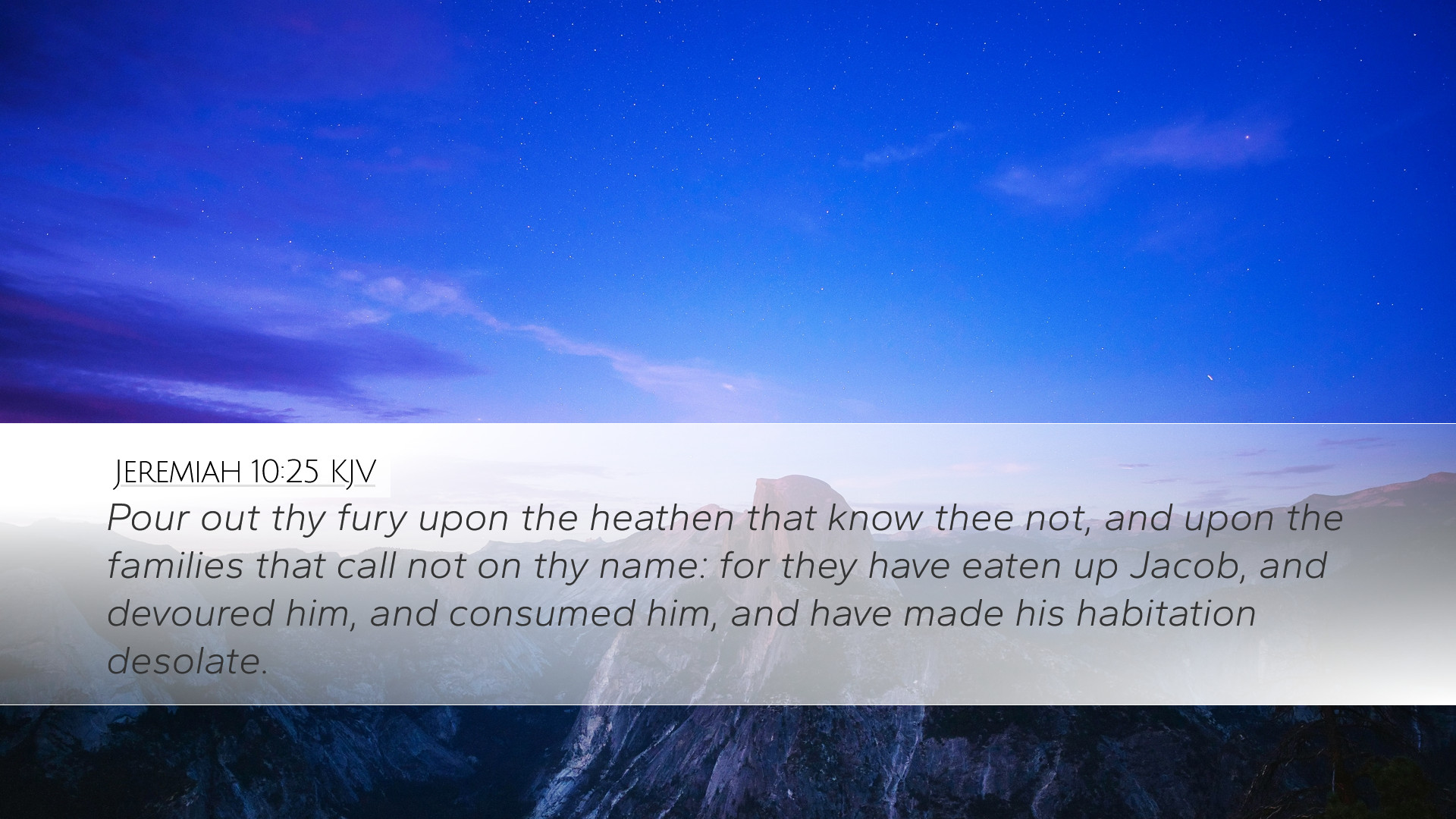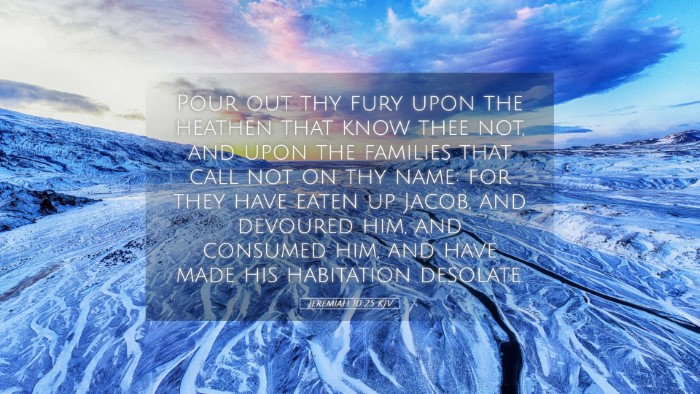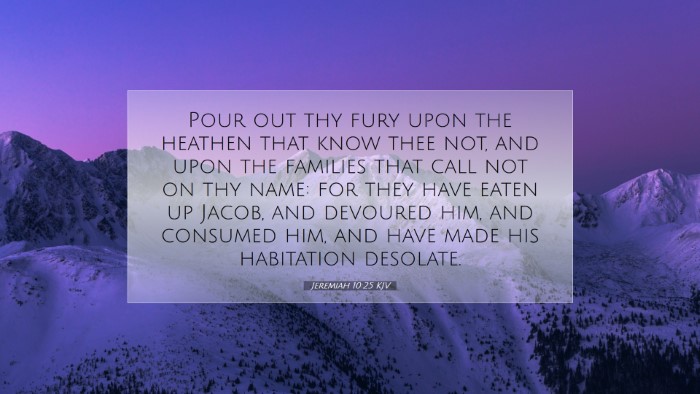Commentary on Jeremiah 10:25
Verse Context: Jeremiah 10:25 states, “Pour out thy fury upon the heathen that know thee not, and upon the families that call not on thy name: for they have eaten up Jacob, and devoured him, and consumed him, and have made his habitation desolate.” This verse comes at a time when Israel was facing the consequences of their unfaithfulness, with a prophetic cry for divine justice against the nations.
Insights from Matthew Henry
Divine Judgment: Matthew Henry emphasizes the reality of divine judgment upon those who do not acknowledge God. In this verse, the prophet Jeremiah expresses God’s displeasure towards the heathen nations surrounding Israel. Henry notes that these nations, having invaded and devastated Israel, are seen as deserving of God’s wrath.
Character of the Heathen: Additionally, Henry comments on the nature of these heathens who know not the Lord. They represent a persistent defiance against God, and their lack of knowledge results in moral corruption. The call upon God to pour out His fury is seen as a recognition that justice is necessary for the preservation of righteousness.
Insights from Albert Barnes
God’s Sovereignty: Albert Barnes provides insight into the sovereignty of God in administering justice. He observes that God, being the ruler of all nations, has the right to judge those who reject Him. Barnes suggests that this verse signifies a plea for God’s judgment not only against individual offenses but against whole nations that dishonor His name.
National Accountability: Barnes also raises the issue of national accountability before God. The reference to families literally points towards the recognition that entire communities are held accountable for their actions. He argues that the devouring of Jacob symbolizes the devastation inflicted upon Israel, which calls for judgment upon the perpetrators.
Insights from Adam Clarke
Expectation of Retribution: Adam Clarke highlights the concept of retribution as a significant theme in this verse. He notes that Jeremiah's cry is an expectation that God will act against those who have harmed His chosen people, reflecting the idea that divine justice is inevitable.
Desolation of the Land: Clarke interprets the term "desolate habitation" as a depiction of a land ravaged and left in ruins. This desolation was not only physical but spiritual, representing a loss of God’s presence. He suggests that the devastation experienced by Israel was a stark reminder for the nations of the seriousness of turning away from God.
Theological Significance
Call to Prayer and Intercession: The underpinning message of the verse serves as a call to prayer and intercession for nations that do not know God. The recognition of God’s fury against unfaithfulness invites believers to plead for mercy not only for themselves but for the world around them.
Contextual Implications: This verse invites a reflection on the current state of nations today. Are they aware of their position before God? This highlights a societal need for awareness and reformation, not just for Israel’s ancient idolatry but for contemporary secularism and moral decay.
Applications for Today
- Awareness of Divine Justice: Understanding that God's justice is applicable in every generation can help believers advocate for righteousness in the face of moral decline.
- Intercession for Nations: Encouraging believers to actively pray for the nations, acknowledging their need for divine truth and knowledge of God.
- Spiritual Vigilance: A call for vigilance over one's own spiritual condition as well as that of the community. Engaging in practices that reinforce the knowledge and reverence for God is paramount.
- Responsibility to Act: Reflection on how Christians can contribute positively to society and advocate justice, mercy, and truth in their communities.
Conclusion: Jeremiah 10:25 offers a profound reminder of the seriousness of divine judgment over nations and individuals. It serves as a pivotal call to awareness, urging believers to engage in fervent prayer, reflect on their responsibilities, and seek to influence the world towards righteousness.


